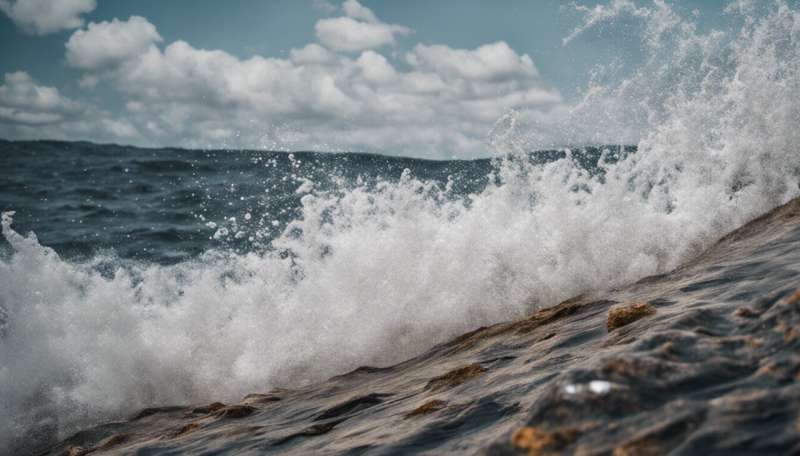UK waters are too polluted to swim in, but European countries offer answers

Almost all of the UK's waterways are polluted. In 2022, a House of Commons Committee concluded that no river in England was free from chemical contamination. Only 14% of UK rivers had a "good" ecological status.
Both agricultural runoff and the release of untreated sewage are leading causes of river pollution in the UK. In 2021, water companies discharged untreated sewage into English waterways for a combined total of .
The discharge of sewage has happened for several different reasons.
A lack of investment in dated infrastructure means the capacity of many sewage pipes is regularly exceeded. So, to avoid sewage backing up and flooding public spaces and people's homes, water companies often release sewage elsewhere through the .
The situation has not been helped by disruption to wastewater treatment chemical supplies following Brexit and the COVID-19 pandemic. The Environment Agency responded to these shortages by introducing temporary in 2021, allowing water companies to temporarily release not-fully-treated effluents into the environment.
Raw sewage can affect human health and is a threat to wildlife. Not only does it contain , sewage discharge floods rivers with nutrients that aid the development of . These blooms prevent light from reaching deeper layers of water, so do not allow some plants to photosynthesize. They can even reduce the oxygen content of water, which .
Within Europe, the UK's polluted waterways are largely an anomaly. Many other countries have in bathing water quality in recent decades—indeed, bathing is now possible in some capital cities including Amsterdam, Berlin, Copenhagen and Vienna.
Between 1991 and 2019, the percentage of Europe's bathing waters with "excellent" water quality increased from 53% to 85%. In several countries, including Austria, Greece and Malta, more than 95% of bathing sites are now classified as excellent.
So, what lessons can the UK learn from European countries that have cleaned up their act?
1. Croatia
In 2009, had access to wastewater collection systems, and less than 25% to any form of wastewater treatment. The practice of discharging untreated sewage into the Adriatic Sea reduced the quality of Croatia's coastal waters.
But between 2009 and 2015, a World Bank loan worth US$87.5 million (£70m) funded a project to improve sanitation in Croatia. This included the construction of 14 new wastewater treatment plants and the installation of 162km of sewerage networks.
By 2016, the percentage of Croatia's population with access to wastewater services had increased to 72%. And the quality of Croatia's coastal waters continues to improve. In 2021, had excellent water quality.

2. Germany
The in western Germany flows through the country's major industrial Ruhr region. In 1971, bathing in the river was banned due to , both from sewage and chemical effluent from the local steel and mining industries.
Between 2010 and 2015, the German Federal Ministry of Education and Research funded a research project called "", which targeted the return of bathing sites to the river. The project combined extensive wastewater treatment with monitoring water quality, modeling routes by which bacteria and viruses enter the river, and developing an early warning system for short-term water pollution.
The project succeeded in reopening the popular bathing site at Lake Baldeney, to the south of city of Essen, in 2017.
3. Albania
In 2015, 40% of Albania's bathing waters were classified as poor. This was largely the consequence of the country's underdeveloped water supply and sewerage network.
But in recent years, bathing water quality in coastal areas of Albania has improved significantly. of the country's bathing sites are now of excellent quality, including some of the country's biggest tourist destinations, such as Durrës in western Albania.
With the help of funding from the World Bank, local sewerage networks have been improved. Five new wastewater treatment plants have been installed along the coastline of Durrës, with capacity to serve half a million residents.
This investment quickly improved bathing water quality. By 2019, just 5.9% of Albania's bathing sites were of poor status.
4. Italy
The water quality in , a small lake in the north of Italy, had deteriorated over a long period since the 1960s. This was the result of extensive algal blooms that were likely caused by nutrient enrichment from industrial effluent.
Since the 1990s, however, a research program supported by the European Commission and the Italian Ministry of the Environment has restored the lake's water quality. In 2000 and 2001, nutrients were removed directly from the lake through methods including and dredging. Two of the lake's three bathing sites are now of excellent quality.
A major political issue
Water quality is now a major political issue in the UK. The leader of the Labor Party, Keir Starmer, recently of "turning Britain's waterways into an open sewer."
Scrutiny such as this has prompted the UK government to to raise the cap on fines for water companies that are found to be polluting the environment. Already last year, new requirements had been imposed on these companies to by 2050, in order to reduce sewage discharges.
But it remains to be seen if such mounting pressure will result in the UK's rivers, lakes and coastlines becoming safer for bathing. Looking to Europe for inspiration, it should invest heavily in wastewater and sewerage infrastructure and on water monitoring, so that many more of us can enjoy swimming in our natural surroundings.
Provided by The Conversation
This article is republished from under a Creative Commons license. Read the .![]()




















